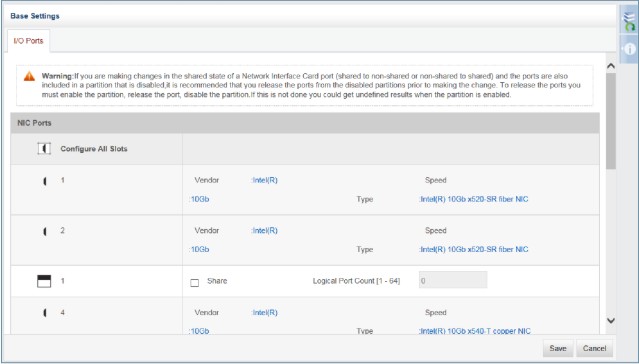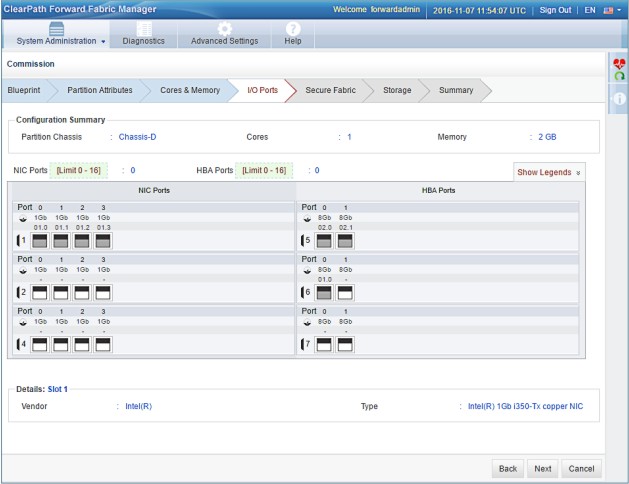Single Root I/O Virtualization (SR-IOV) enables a single network interface card (NIC) to appear as multiple virtual NICs. Ports on the NIC are then known as shared ports or logical ports. (Shared ports or logical ports are also known as virtual functions (VFs) or virtual ports.) SR-IOV technology is commonly known as “network sharing” or “NIC sharing”.
(Host bus adapter ports and InfiniBand host channel adapter ports cannot be shared by the user.)
A port that is not shared is called a dedicated port.
The 1 Gb Ethernet (GbE) NIC, the 10 GbE NIC, and the 56 Gb dual-port InfiniBand HCA all support SR-IOV.
Using the Fabric Manager, you can define each individual port as shared or dedicated (unshared). By default, ports are dedicated.
You define a given port as shared or dedicated by using the Fabric Manager to select an enterprise partition platform, select the Config. Info tab, and then click the Settings button. The relevant Fabric Manager screen is shown here.

The Fabric Manager also enables you to define
The maximum number of shared ports that the physical port can support
Whether the physical port supports network teaming / network bonding (see Network Teaming / Network Bonding)
Whether the physical port supports peer forwarding (that is, whether two ports can communicate with each other directly without being routed through a switch)
(Peer forwarding applies to NIC ports, not HBA ports or InfiniBand HCA ports.)
The relevant Fabric Manager screen is shown here.

Defining a port as shared, defining the maximum number of shared ports, defining teaming, and defining peer forwarding all cause the EPP to be rebooted.
Each physical port on the 1 GbE NIC can support up to 8 shared ports. Each physical port on the 10 GbE NIC can support up to 32 shared ports.
Up to six 10GbE NICs can be shared per EPP.
If you upgrade an EPP from release 3.0 to release 3.1, sharing of ports is not affected. That is, if a port was shared in 3.0, it remains shared in 3.1; and if it was unshared, it remains unshared. Likewise, if you upgrade an EPP from release 3.1 to release 4.0, sharing of ports is not affected.